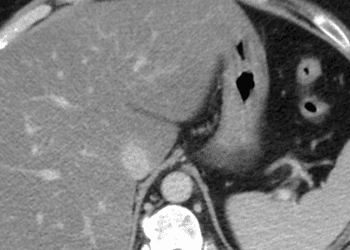Pre-injury ACE inhibitors may reduce organ failure in obese trauma patients
1. Obese trauma patients receiving ACEi/ARB therapy pre-injury had reduced leukocyte inflammatory markers including DL1, CD328, CD154 and CD47 and increased cell survival.
2. Multiple organ failure (MOF) occurred less frequently in obese trauma patients receiving ACEi/ARB pre-injury presumed to be due to lesser known effects of angiotensin II on adipose tissue.
Evidence Rating Level: 2 (Good)
Study Rundown: As the obesity epidemic continues to rise, a major concern in obese trauma patients is the higher incidence of multiple organ failure (MOF). Obesity is a known independent risk factor for disability in trauma patients. Angiotensin II (AT-II) may play a role in these findings as adipose tissue, T-cells, and monocytes all have AT-II receptors. AT-II causes hypertension by decreasing renal perfusion but may also cause accelerated atherosclerotic disease, vascular disease, and cardiomyopathy. On T cells and macrophages AT-II causes acute inflammation while impairing long term survival, both of which may lead to end organ damage in the acute phase of trauma. This study involved a retrospective analysis of data from a trauma database for pre-injury ACEi/ARB use to investigate its effects on MOF and on inflammatory markers in obese patients. Despite boasting controls well matched by age, gender, and injury severity scores at multiple time points, the study was limited by an inability to assess patient adherence to ACEi/ARB therapy and lack of long term follow-up of delayed organ damage or immune compromise. Despite this, ACEi/ARB use appeared to have a net decrease in MOF comparing obese patients. In addition, leukocyte inflammatory markers were found to be reduced among obese patients using ACEi/ARB therapy, indicating potentially decreased acute inflammation and preserving cell function. This may point towards potential therapy options in acute trauma patients with obesity.
Click to read the study in the Journal of the American College of Surgeons
Relevant Reading: Effects of an angiotensin-converting enzyme inhibitor on the inflammatory response in in vivo and in vitro models
In-Depth [retrospective cohort]: This study utilized the “Inflammation and the Host: Response to Injury” trauma-related database to identify 1,932 trauma patients. After adjusting for age, gender and injury severity, 94 trauma patients on ACEi/ARB (55 obese and 39 non-obese), 102 obese not on ACEi/ARB, and 75 non-obese not on ACEi/ARB were identified. Patients were excluded for BMI <18.5, age <18 years, or if BMI couldn’t be obtained. Included patients were matched by age, gender, injury severity score and across multiple post-injury time points (12 hours, 1 day, 2 days, 3 days, 7 days, and >7 days). Injury severity was analyzed using Marshall and Denver-2 standardized scales.
No time points showed a greater injury severity that was markedly different after >7 days. Obese patients on ACEi/ARB had lower Marshall (5.83 vs 6.49, p = 0.009) and Denver-2 (2.45 vs 3.33, p = 0.006) scores compared to obese patients not on ACEi/ARB. Hematologic injury was significantly different between obese populations (0.79+/-0.99 on ACEi/ARB vs 0.88+/-0.78 not on therapy, p = 0.045). While obese patients not on ACEi/ARB had overall worse MOF, post-hoc analysis showed only hematologic significance. T-cell immune markers were significantly lower in obese patients taking ACEi/ARB compared to those not taking the medication with PD-L1 (4.06 vs 6.53, p = 0.002), CD (3.28 vs 3.76, p = 0.001), CD 154 (0.24 vs 0.68, p = 0.042).
Image: PD
©2015 2 Minute Medicine, Inc. All rights reserved. No works may be reproduced without expressed written consent from 2 Minute Medicine, Inc. Inquire about licensing here. No article should be construed as medical advice and is not intended as such by the authors or by 2 Minute Medicine, Inc.









